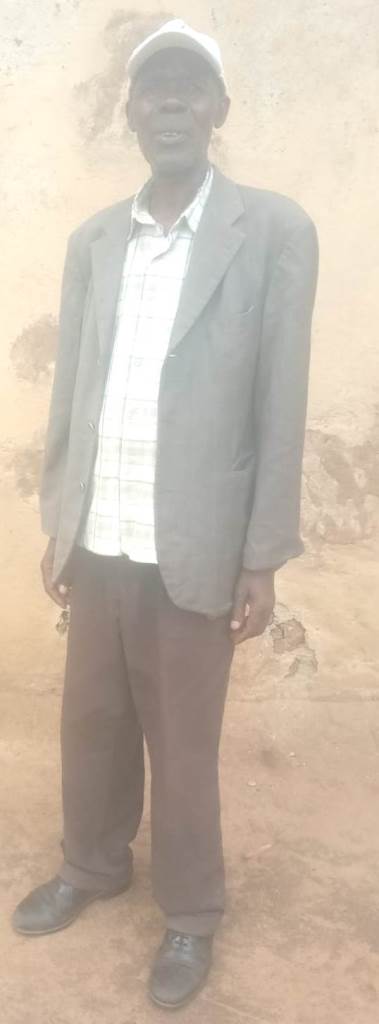John Chechu Chemiati is a retired teacher whose life story is a testament to dedication, wit, and reinvention. Born in 1950, he belonged to a generation that valued education not just as a career, but as a calling. From an early age, John aspired to become a teacher—a dream he pursued with determination until he was admitted to the prestigious Kilimambogo Teachers’ Training College, a renowned institution known as the birthplace of KNUT. Kilimambogo had long been a cradle for educators, producing teachers who would go on to shape generations across the country. For John, training there was both an honour and a statement—he was entering the ranks of a prestigious lineage of educators, stepping into a tradition that had given birth to KNUT itself. At that time, being a P1 teacher was an esteemed achievement, held in the same regard as a PhD today.
Upon completing his studies, John received his first posting to Mokwo Primary School in Keiyo South of Elgeyo Marakwet. The area struck him as strange at first—remote, quiet, and without rental houses. He arrived at the school at 6:30 in the evening and was warmly received by the then-area chief, who had no housing to offer him. That night, John’s “welcome meal” was unlike anything he had anticipated: the only thing on the table was Busaa, the local brew. Ironically, the chief, whose role was to enforce laws, was a perpetual brewer. Despite the unconventional dinner, John appreciated the gesture, realising that teaching in remote areas meant embracing the unexpected—and sometimes absurdly humorous—moments that came with it.
Life at Mokwo was not just about surviving unusual dinners. Learners thrived under John’s guidance, and their performance was exceptional because parents actively rewarded excellence with milk, chickens, vegetables, and other tokens of appreciation. One clever pupil once declared, “Sir, I’ll bring you two chickens if I get an A in math!” True to their word, the chickens arrived the next morning, healthy and clucking. The students treated their lessons like a lively marketplace, and John, amused and secretly proud, became the honoured recipient of their ambition. Teachers were deeply respected in the community, and the relationships among educators, learners, and families were marked by mutual admiration and trust.
During his career, John had the privilege of meeting the late Nicholas Biwott, a prominent figure who held teachers in special regard. Biwott was known for his generosity and unique ways of recognising educators’ invaluable contributions. Whenever he interacted with teachers, he spoke with warmth and admiration, leaving a lasting impression on John. These encounters reinforced his sense of purpose, reminding him that teaching was more than a profession—it was a noble service to humanity.
John’s full name, John Chechu Chemiati, often drew attention. In Kalenjin tradition, Chechu can be interpreted as “one who has arrived,” while Chemiati symbolises presence. When John said his name aloud, people watched him with wonder, sensing the significance it carried—a reflection of his identity, heritage, and the promise of his contributions to the community. The name, almost magical to pupils, gave him an air of legend that complemented his wit and charisma in the classroom.
Even the area chief provided comic relief throughout John’s early career. Despite being the law in Mokwo, he could rarely resist his brewing habits. On one occasion, John noticed the chief sneaking extra barrels of Busaa into his home while telling visiting elders he was “on official duty.” John jokingly remarked, “Chief, with all this Busaa, you could start your own school of fermentation!” The chief laughed heartily, and the town still recalls the day a humble teacher dared to tease a law-bending chief. That moment set the tone for John’s career: even in serious work, humour was essential, and respect didn’t mean rigidity.
READ ALSO:
Gucha Deputy Commissioner assures exam candidates of security
John’s life philosophy went beyond teaching. He always lived by two guiding principles: do your teaching job (or primary career) well, but always have a side hustle, and treat every earning as if it were the last one. Whether it was a teacher’s salary, a small gift from a parent, or a business profit, John handled every shilling with care and purpose. This mindset instilled discipline, foresight, and appreciation for what he had, ensuring that no resource was wasted and no opportunity overlooked. It wasn’t about stinginess; it was about respect—for money, for effort, and for the people who made it possible.
Another hallmark of John’s integrity was his no-nonsense approach to school funds. He castigates heads of institutions who misuse money, often saying with a grin, “Any head who hides school funds under the mattress might as well buy a coffin first—they don’t live long!” John’s humour makes the lesson stick: stealing from a school is not only unethical but also dangerous and self-defeating. He recounts tales of heads attempting to convert school funds into personal ventures—one even tried using money meant for desks to buy a boda-boda. John quipped, “You cannot ride the school’s money faster than karma!” Even the chickens delivered by parents seem to nod in agreement: school funds are sacred, and any misuse will quickly backfire.
John also has strong views on teaching itself. He often says that teachers who fail to prepare well should only expect misfortune. Delivered with his characteristic grin, this philosophy mixes humour, superstition, and morality. “If you cannot make your learners excel,” he jokes, “then don’t be surprised when your favourite cow falls sick, your chicken stops laying, or even Busaa turns sour!” For John, excellence in teaching is non-negotiable, and the consequences of neglect are both real and, amusingly, cosmic. His humorous warnings keep educators on their toes and remind them that responsibility and diligence are essential in shaping the future.
In 2000, after decades of faithful service, John retired. But retirement did not slow him down; it opened a new chapter. By prudently investing his retirement dues into business ventures, and by valuing every shilling as if it were his last, he turned his side hustle into a thriving enterprise. Today, John Chechu Chemiati stands as a flourishing entrepreneur—proving that the spirit of a teacher—curious, disciplined, and forward-looking—can succeed in any field.
John Chechu Chemiati’s journey is more than a career; it is a legend of adventure, humour, and transformation. From the chalkboard at Mokwo Primary School, where learners excelled and teachers were revered, to nights of Busaa with a law-bending chief, to students who bargained with chickens, to a name that left everyone in awe, to life lessons on side hustles, financial prudence, school fund integrity, and the cosmic consequences of laziness in teaching—his story reminds us that teaching, life, humor, and honesty can coexist beautifully. His name, evoking arrival and presence, mirrored the impact he made wherever he went—a lasting contribution to education, community, and the joy of living fully.
By Hillary Muhalya
You can also follow our social media pages on Twitter: Education News KE and Facebook: Education News Newspaper for timely updates.
>>> Click here to stay up-to-date with trending regional stories
>>> Click here to read more informed opinions on the country’s education landscape
>>> Click here to stay ahead with the latest national news.






